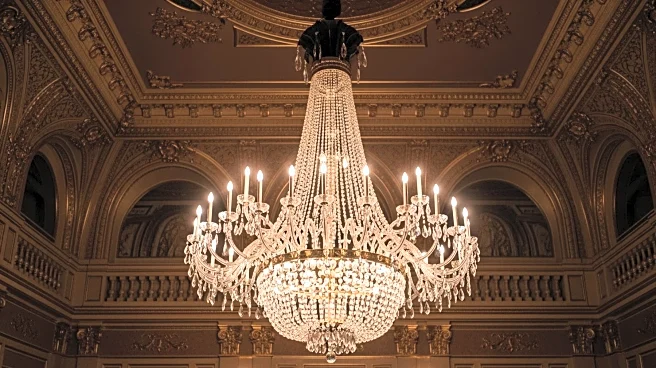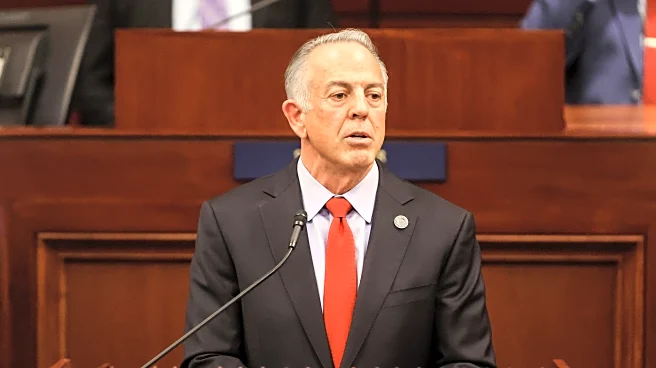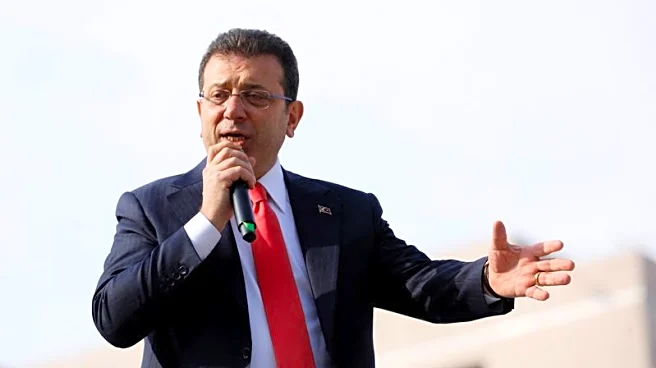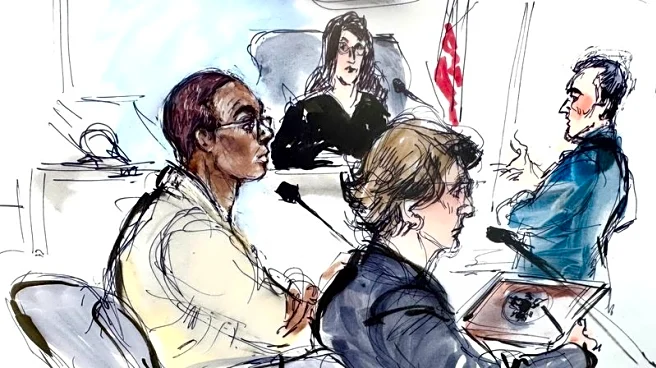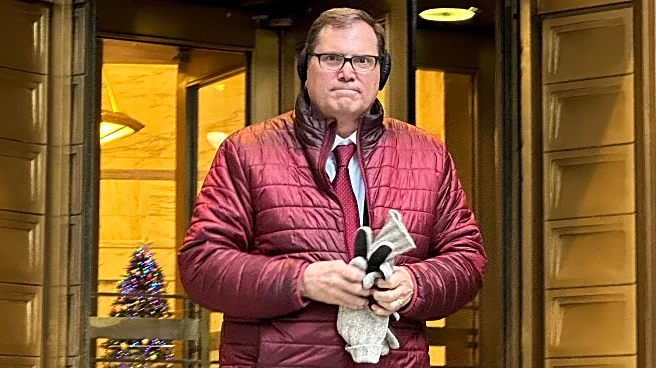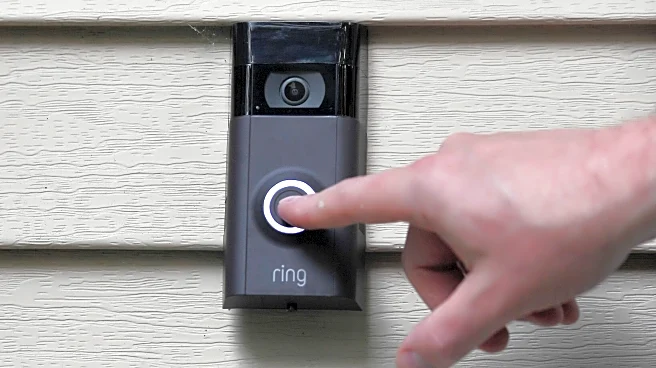What's Happening?
President Trump's plan to build a new ballroom at the White House has sparked questions about funding and ethics. The project, estimated to cost $250 million, is being funded by President Trump and 'patriot donors,' with nearly $200 million pledged so
far. The fundraising process has drawn criticism from Democratic leaders and ethics experts, who question the influence donors may have on federal policies. Concerns have been raised about the use of public office for private gain and potential violations of federal ethics rules.
Why It's Important?
The ballroom project highlights the ethical challenges of private funding for government projects. Critics argue that donations could lead to 'pay to play' scenarios, where donors receive favorable treatment in exchange for their contributions. This raises concerns about the integrity of government decision-making and the potential for conflicts of interest. The project also underscores the need for transparency in funding processes to maintain public trust in government institutions.
What's Next?
As construction begins, scrutiny from ethics experts and political leaders is expected to intensify. The White House may face pressure to disclose the full list of donors and their contributions. Legal challenges could arise if the project is found to violate federal ethics rules or the Antideficiency Act. The outcome of these discussions may influence future policies on private funding for government projects.
Beyond the Headlines
The ballroom project may lead to broader discussions about the role of private funding in government and its impact on public trust. Ethical considerations could shape future policies on donations and influence in government projects. The project may also affect the public perception of President Trump and his administration's approach to funding and ethics.
